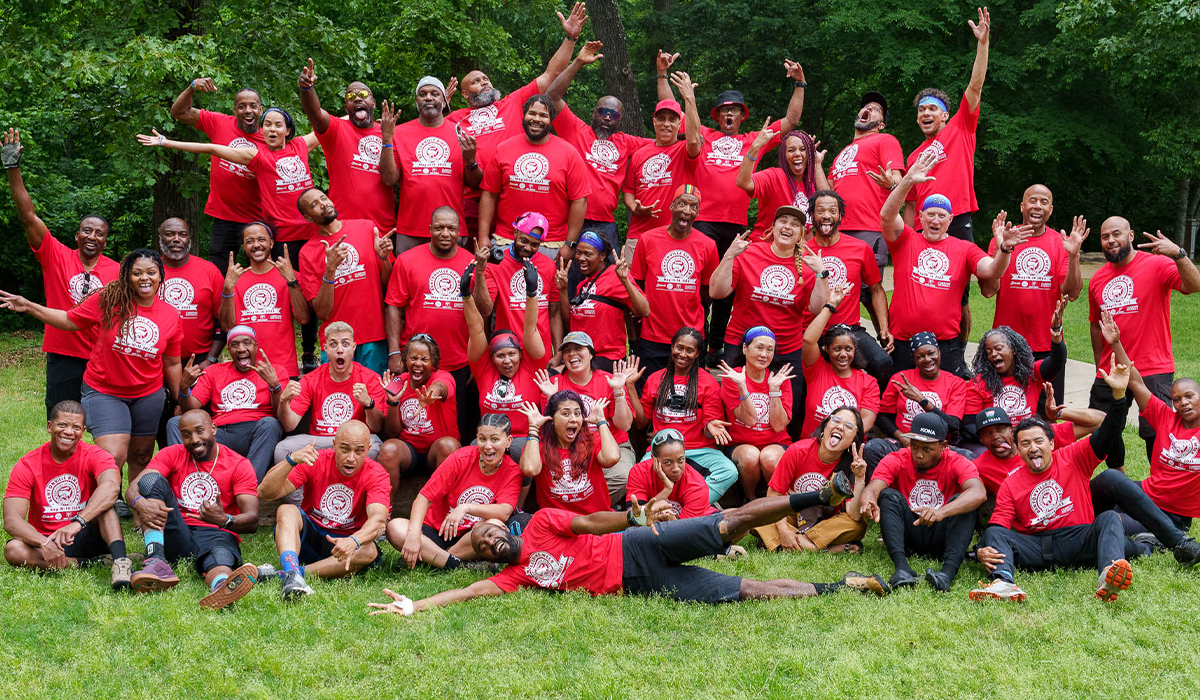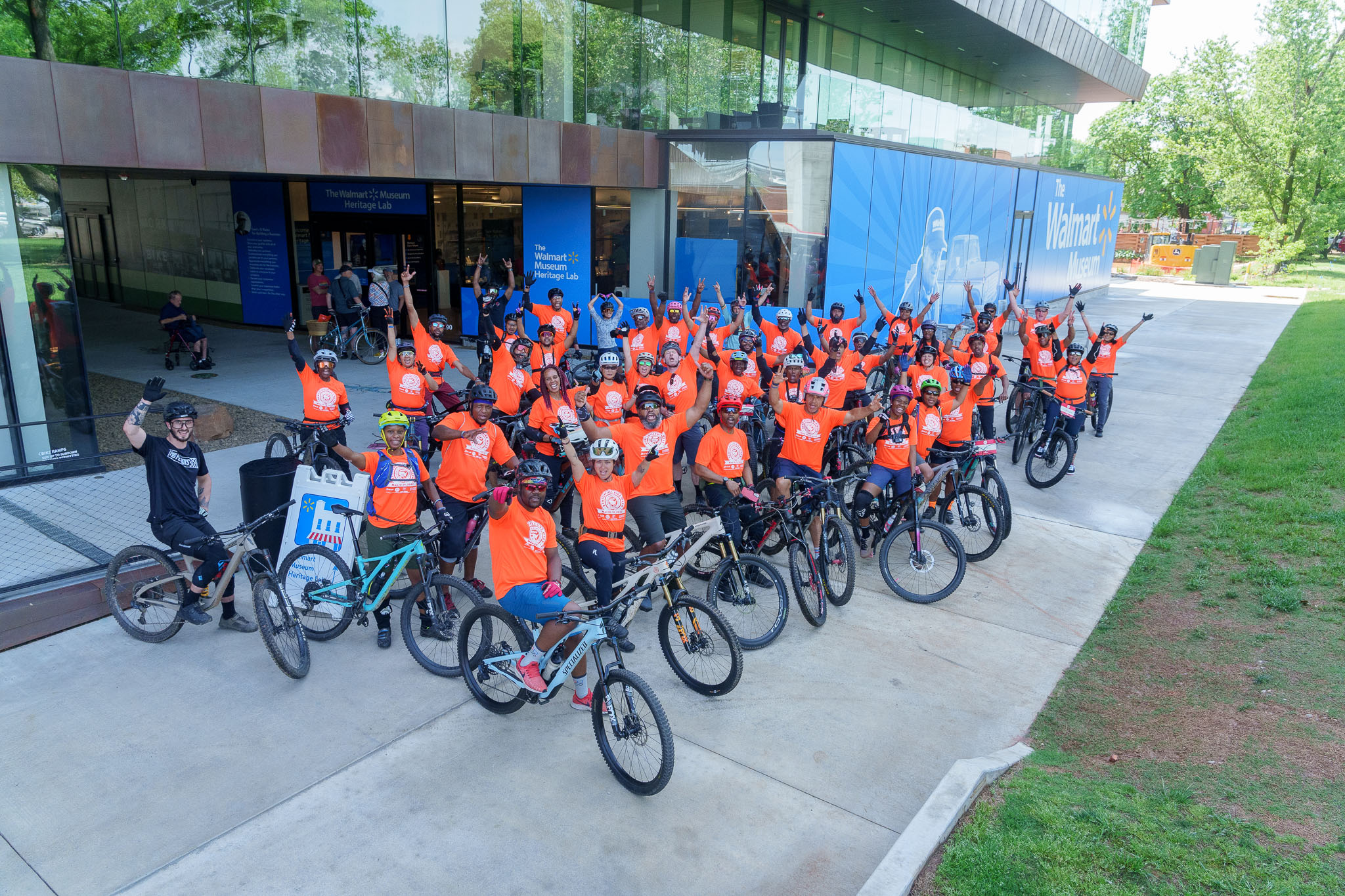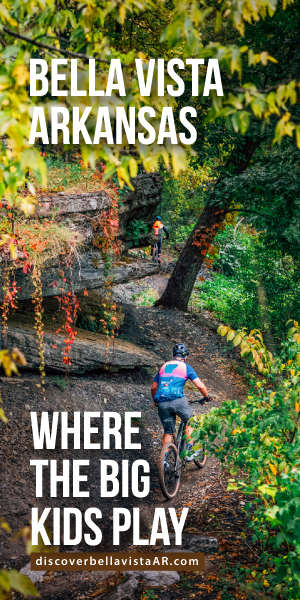Cycling for Change
Three organizations work to break down barriers to cycling for BIPOC communities.
By Kody Ford

MINORITY MOUNTAIN BIKERS: Their goal is to get black and brown people on bikes and having fun. - Photo: Korey Hopkins, @khopshoots
Given cycling’s growth over the last decade, accessibility has long plagued the sport. Costs for a bicycle or gear, access to trails or other infrastructure, and even preconceived notions of who is welcome within a community have served as socioeconomic gatekeepers. Underserved communities, especially those populated by people of color, have often found themselves left in the cold regarding cycling.
Harry Hill, founder of the Minority Mountain Bikers, said, “There’s a barrier to this sport, and it’s not just underserved [communities]. There’s a financial barrier for everybody to come. It’s not a cheap sport, right? A decent mountain bike’s gonna cost you three grand or more. And so that’s a barrier.”
Bea Apple, co-founder of BIKE.POC, concurred and offered more issues faced by BIPOC communities.
“Every person’s first biking experience usually happens somewhere within the vicinity of your house,” she said. “And if you think about the places where Black and brown folks typically live — because of redlining and all of those types of policies where they’re kind of pinned in — those areas suffer from disinvestment and a lack of infrastructure.”
Across Arkansas, cycling infrastructure, both paved and off-road, has sprung up as a way to attract tourism and economic development. Local communities have taken advantage of it, especially in Northwest Arkansas where the boom in mountain biking is unavoidable. Bentonville now markets itself as the Mountain Biking Capital of the World given the investments in trails in the area. But early on, the sport had a less-than-inclusive reputation. Organizations like BIKE.POC, All Bikes Welcome and the Minority Mountain Bikers (a national Facebook group that organizes rides worldwide, including in NWA) are working to expand inclusiveness and address systemic issues that have kept BIPOC communities on the sidelines. This fall, the groups will host BAM Week, a convergence of cycling events across NWA.
It’s not a cheap sport, right? A decent mountain bike’s gonna cost you three grand or more. And so that’s a barrier.”

LENDING A HAND: Seay helps a young rider with their helmet. - Eric Arce, @pedalhomie

BIKE.POC
Apple and Kim Seay founded BIKE.POC in the summer of 2020 when they organized a Black Lives Matter ride in partnership with Trailblazers. Apple describes this as their “John Lewis moment,” a chance to make “good trouble” — a term coined by the civil rights activist and congressman as a way to shake up the status quo.
Apple said, “We just found that our community, the cycling community especially, wasn’t equipped at all to even have a conversation about Black Lives Matter, about systemic racism within the cycling ecosystem. And they also didn’t really understand how the current built environment that exists today in Arkansas, [and] all over the country, is rooted in inequality and racist redlining policies. Kim and I were behind the scenes, pushing different leadership in these different organizations to say, ‘Hey, like, you might wanna get acquainted with these issues. You might wanna start having conversations about safety and policing and with people on bikes who are at risk. At one point Kim and I just looked at each other … and we were like, ‘I guess we’re the ones,’ because what we were meeting with was just an unwillingness to take action; people were scared.”
Seay, a Trailblazers board member, credited the organization with helping them get started.
She said, “It was a nice partnership to have with an organization that’s so widespread and known within Northwest Arkansas, an organization that also is geared at helping nonprofits start up and nonprofits in the cycling and active transportation network system.”
The following summer, they received a grant from Trailblazers after working on the first Critical Mass Summit and assisting with the organization’s internal and external DEI and programming strategies. In the early days, BIKE.POC focused on educating the community about the impacts of racist policies such as redlining and how they affected infrastructure.
BIKE.POC partnered with organizations such as Crystal Bridges Museum of American Art on events like Pass the Mic — an in-person panel discussion to bring the Northwest Arkansas community together to listen, learn and problem-solve ways to better diversify the region’s trails, cycling and active transportation scene. These days, BIKE.POC focuses not only on cycling, but also hikes, paddleboarding, canoeing, walking or any events that get people outside and moving, Seay said.
Getting a bike is a significant barrier, and BIKE.POC partners with organizations like Pedal It Forward to support donation drives to help people get their first one.

STOKE IS HIGH: The Minority Mountain Bikers have been making trips to NWA since 2001. - Korey Hopkins, @khopshoots
MINORITY MOUNTAIN BIKERS
Established in 2020 by Hill, Minority Mountain Bikers has evolved from a small local gathering of enthusiasts into a central hub of mountain biking culture for individuals of color across the nation. It embraces beginners as well as seasoned riders. To help beginning riders get their first bike, Hill is raising funds to purchase bikes housed at participating bicycle shops so new riders can use them when needed in his hometown of Washington, D.C.
The Minority Mountain Bikers have organized rides in Colorado, New Mexico and Jamaica and began visiting NWA in 2021. Their Bentonville ride was chronicled in a short documentary called “Together: The Minority Mountain Bikers in the Heartland” by Garrett Hubbard, which won “Best Film” during the Arkansas Shorts film festival earlier this year in Hot Springs.
Hill says Minority Mountain Bikers focuses on planning and executing mountain biking rides and trips for Black and brown people of all skill levels. He said, “We just wanna get people out and experience different parts of the country and out of the country. So, pretty much in a nutshell the focus is to get brown and Black folks together on bikes, go ride and have fun.”
ALL BIKES WELCOME
All Bikes Welcome focuses on race, gender and class diversity in the cycling community with a particular interest in helping reduce the barriers to entry. They provide free and low-cost outdoor programming in the Northwest Arkansas corridor for people from a variety of backgrounds with experience ranging from “never touched a mountain bike” to the advanced rider. By providing opportunities for individuals to learn and grow (on and off the bike) in a fun, supportive and low-stakes environment, All Bikes Welcome hopes to create and support an emerging base of beginner mountain bikers and outdoor enthusiasts who feel comfortable being their whole selves.
According to Rachel Olzer, executive director of All Bikes Welcome, the Grit Mountain Bike Festival is a three-day community event in Fayetteville focused on gathering trans men and women, cis women and nonbinary folks around the sport of mountain biking. Grit Fest is billed as “one of the few for us, by us events in the country,” with the goal of setting the standard for inclusion in the cycling industry. Along with biking, Grit Fest features talks, workshops, networking, camping and event railside yoga.
Alongside Grit MTB Fest, All Bikes Welcome has launched the BIPOC Fellowship program to support Black, Indigenous and People of Color on their cycling journeys. Their Para/Adaptive Rider program supports adaptive cyclists and those interested in adaptive cycling. Both programs activate a new cohort of individuals each year during the Grit MTB Festival. All are encouraged to apply, with preference given to trans, non-binary, BIPOC and first-time riders.
Olzer said, “Our goal is to support folks who are brand-new to the sport and who maybe have never had the chance to just try something out in a safe environment. So, we’re doing that, which is really cool to see. And we’re now gonna get to track where those folks end up, and some of them are going to other events and starting to think about racing their bikes and doing things. And it’s starting at Grit Fest, which is really exciting for us.”

STOKE IS HIGH: The Minority Mountain Bikers have been making trips to NWA since 2001. - Korey Hopkins, @khopshoots
BAM WEEK
Collaboration has been vital for breaking down barriers in the cycling community for BIPOC communities. BAM Week, which will take place Sept. 25-29, hopes to take this to the next level. All three organizations will host events during BAM Week across NWA.

BAM Week aims to unite diverse cycling communities through a weeklong celebration of inclusivity, adventure and camaraderie by bringing together BIKE.POC, Minority Mountain Bikers and the Grit MTB Festival. They hope to create an impactful and memorable experience that fosters a sense of belonging, promotes diversity in outdoor recreation, and empowers all participants to enjoy the thrill of mountain biking in a welcoming environment where riders of all backgrounds and abilities can connect, learn and grow together.
Each organization will host their own events during BAM Week. Minority Mountain Bikers Week will bring riders from across the country to Bentonville and Bella Vista for four days of amazing rides, skills clinics and cultural and community activities Sept. 25-29. The three-day Grit MTB Festival will return to Centennial Park in Fayetteville on Sept. 27-29. BIKE.POC is partnering with Crystal Bridges to host their sixth Pass the Mic and film festival showcasing the work of their collective organizations on Sept. 26. The organizations plan to make BAM Week an annual event in Northwest Arkansas.
Olzer said, “In my mind, part of the value (of BAM Week) is that it’s like, not only are you excited about coming to (Grit Fest), you can get excited about potentially participating in some of the auxiliary things around each of our events. We kind of each have a different target audience, so it’s an opportunity to share audiences as well … And back to the financial barriers, Northwest Arkansas isn’t the easiest place to travel to, nor is it the cheapest. And so providing an opportunity for folks to only have to travel here one time is really great.”
VISIT:
minoritymountainbikers.com
allbikeswelcome.org
gritfestival.com
bikepoc.org


